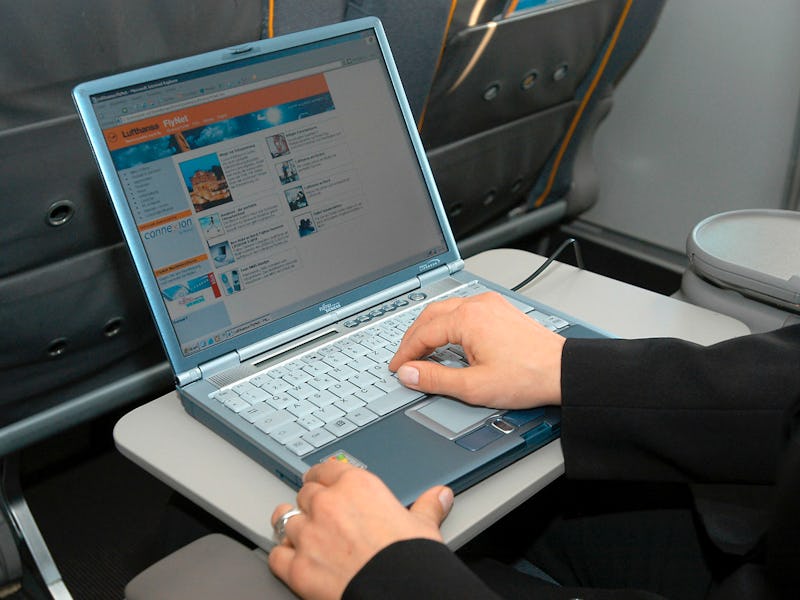The Future of Airplane Wifi Is Coming … in 2017
Maybe your movie will have loaded by then.

British satellite telecommunications company Inmarsat has announced that it’s partnering with Deutsche Telekom to bring terrestrial Wi-Fi speed to airplanes, with the goal of hitting the crazy-fast speed 75 megabits per second. German airline Lufthansa is scheduled to be the first to try out the service in 2017.
In-flight Wifi is much maligned not only for its lack of speed, but also for its oft-exorbitant price. Writing for The New York Times in January, Nick Bilton complains that his Virgin America Wi-Fi bill for just a few hours was higher than his smartphone data plan for a month. He even tells of a man who was charged nearly $1,200 for overuse because he fell asleep with the switch turned on.
Many complain that the providers don’t need to do anything about the poor offering because of their stranglehold on the market. Gogo, for example, is nearly ubiquitous. Once its units are installed on an aircraft, it becomes quite difficult for the airline to change providers. At the same time, however, it’s hard for Gogo to update and improve the service. For one, Gogo has tall towers that send signals up to the planes, leading to likelier unreliability.
The Inmarsat-Deutsche Telekom offering, in contrast, will strive to exceed current speed offerings because service will be provided from both satellites and LTE ground networks. It’s unclear whether that means a formidable jack in pricing. Both companies are remaining comfortably mum on the matter. They do indicate that pricing will vary based on flight distance and length.
Data-consuming devices are much more normal now than when airplane Wi-Fi first came about in the late 2000s. At the time, providers and airlines didn’t expect every single passenger to be able to access the internet. That access overwhelms the available wifi, slowing it down.
There’s certainly room for improved service, which Inmarsat and Deutsche Telekom will aim to provide. If the claim that it will work as well as standard wifi is true, then pricing will hopefully drop as well.
A few hours of wifi is just a drop in the monthly plan bucket. An in-sky monopoly will likely factor in — I mean, you can’t really escape the plane — but ideally prices wouldn’t rise much higher than a comparable data plan’s. Alternatively, the plane could offer a pay-as-you-go-style plan instead of forcing the customer to pay upfront and charging more for overuse.